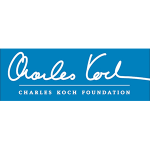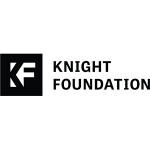About the Center on Technology Policy

Our Mission
To Craft Public Policy for a Better Internet
UNC’s Center on Technology Policy seeks to craft public policy for a better internet. Utilizing an interdisciplinary academic framework, CTP works to identify knowledge gaps and develop actionable policy frameworks that will enable us to realize the potential benefits of technology while minimizing its harms. By working closely with students and expanding the University’s offerings in technology policy analysis, we seek to cultivate and train the field’s future practitioners.

Meet The Team
Matt Perault, Director
 Matt is the director of the Center on Technology Policy, a professor of the practice at UNC’s School of Information & Library Science and a consultant on technology policy issues. He previously led the Center on Science & Technology Policy at Duke University and was a professor of the practice at Duke’s Sanford School of Public Policy. Before that, Matt worked at Facebook, where he was a director on the public policy team and the head of the global policy development team. He covered issues ranging from antitrust to law enforcement to human rights and oversaw the company’s policy work on emerging technologies like artificial intelligence and virtual reality.
Matt is the director of the Center on Technology Policy, a professor of the practice at UNC’s School of Information & Library Science and a consultant on technology policy issues. He previously led the Center on Science & Technology Policy at Duke University and was a professor of the practice at Duke’s Sanford School of Public Policy. Before that, Matt worked at Facebook, where he was a director on the public policy team and the head of the global policy development team. He covered issues ranging from antitrust to law enforcement to human rights and oversaw the company’s policy work on emerging technologies like artificial intelligence and virtual reality.
Prior to joining Facebook, Matt was Counsel at the Congressional Oversight Panel. He previously worked as a consultant at the World Bank and served as a law clerk for the U.S. District Court for the District of Columbia. Matt holds a law degree from Harvard Law School, a Master’s degree in Public Policy from Duke’s Sanford School of Public Policy, and a Bachelor’s degree in political science from Brown University.
Scott Babwah Brennen, Head of Online Expression Policy
 Dr. J. Scott Babwah Brennen is the head of online expression policy at the Center on Technology Policy, where he leads the Center’s work on online expression, misinformation, and political advertising.
Dr. J. Scott Babwah Brennen is the head of online expression policy at the Center on Technology Policy, where he leads the Center’s work on online expression, misinformation, and political advertising.
Before joining the Center on Technology Policy, Scott was a senior policy associate at the Center on Science & Technology Policy at Duke University. Prior to Duke, Scott was a research fellow at the University of Oxford, where he led research for the Oxford Martin Programme on Misinformation, Science, and Media, which examined the interplay between media change and misinformation about science, technology, and health.
Scott completed his doctorate at the Hussman School of Journalism and Media at the University of North Carolina at Chapel Hill in 2018. Before pursing his doctorate, Scott received an M.A. in mass communication from the University of North Carolina at Chapel Hill and a B.A. in chemistry from Grinnell College. He also served in the U.S. Peace Corps as a high school chemistry teacher in northern Mozambique. His research has appeared in a number of outlets including the Annals of the American Academy of Political and Social Science, International Journal of Press/Politics, International Journal of Communication, Communication Theory, Journalism, Journalism Practice, and Science in Context.
Tracy Velez, Executive Assistant
 Tracy is the executive assistant for the Center on Technology Policy. She began her career with UNC-CH in 2005. Since then, she has worked with several educational programs at UNC, including the School of Medicine, School of Dentistry, and with the Graduate School. She graduated from the University of Maryland University College with a Bachelor of Arts in Psychology and minor in sociology, holds a post-baccalaureate certificate in Non-Profit Management from the University of North Carolina at Greensboro, and a Master of Arts in Higher Education, Community College and University Leadership from Appalachian State University.
Tracy is the executive assistant for the Center on Technology Policy. She began her career with UNC-CH in 2005. Since then, she has worked with several educational programs at UNC, including the School of Medicine, School of Dentistry, and with the Graduate School. She graduated from the University of Maryland University College with a Bachelor of Arts in Psychology and minor in sociology, holds a post-baccalaureate certificate in Non-Profit Management from the University of North Carolina at Greensboro, and a Master of Arts in Higher Education, Community College and University Leadership from Appalachian State University.

Our Place In The UNC Community

Ethics Statement
The Center on Technology Policy is committed to diversified financial support, including from individuals, foundations, and the private sector. We rely on this support to fulfill our mission of crafting public policy for a better internet. The substance of the Center’s work is independent from its funders, and we work with UNC’s Division of Institutional Integrity and Risk Management to ensure funding does not compromise our mission. We do not accept financial support that is tied to promised policy positions, statements, or advocacy. All donors are disclosed on the Center’s website bi-annually. For more information on UNC’s policies on financial conflicts of interests, click here.











